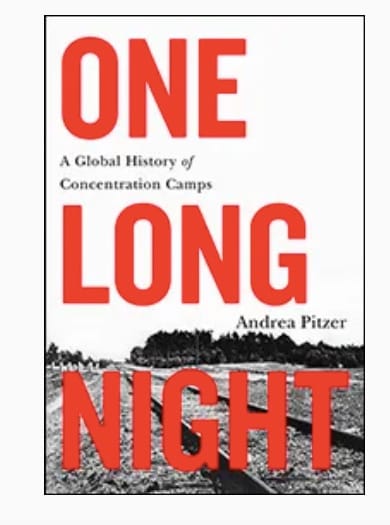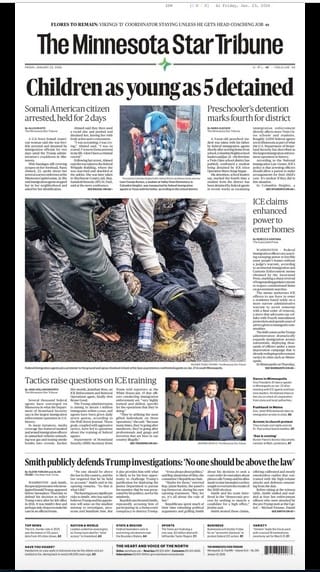How the State Creates Enemies
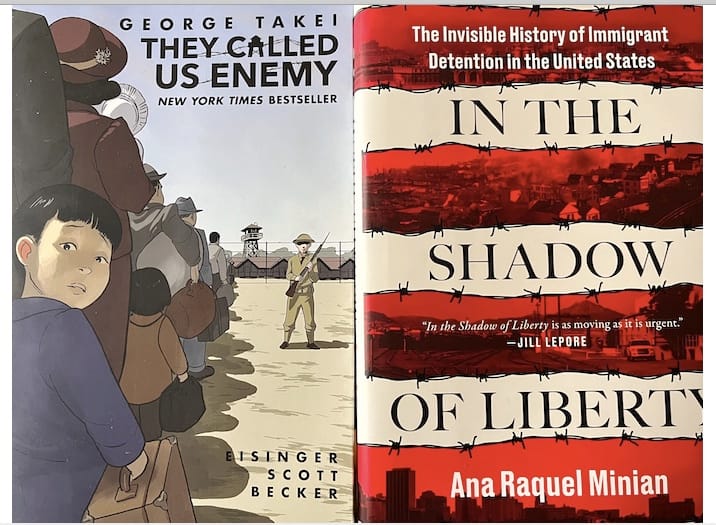
"I know what concentration camps are. I was inside two of them, in America. And yes, we are operating such camps again." George Takei, 2019
Yesterday, I took advantage of some rare seasonal weather, driving through the countryside to relax in a small village. The town is blessed with a gem of an independent bookshop and beautiful places to enjoy tea and baked goods at shady outdoor tables. I brought George Takei's 2019 graphic memoir, They Called Us Enemy, with me, and found myself lingering over nearly every page, trying to take it all in.
The pacing and alignment of text with illustration are effective in "titrating" the heavy content. The book offers a deeply considered and sensitive treatment of this devastating period, as experienced by a child and remembered by an adult. I felt compelled to pause frequently, to realize how Takei's experiences of incarceration echoed through his personal life and, indeed, continue to reverberate through our society.
Takei notes that despite spending four years in the Rohwer and Tule Lake camps with his parents as a child, he later found it difficult to learn about the history of that event. "As a teenager, I became curious about the internment camps," he says in his memoir. "I searched all my civics books and history books . . . but there was nothing about the internment of Japanese Americans."
I didn't learn about it in my education either, not even at the graduate level. The subject seemed erased from white cultural memory by the time I became a literature professor in the 1990s. When I taught Songs My Mother Taught Me, Wakako Yamauchi's 1994 book based on her family's internment, I found that my college students had never learned about it. They had no knowledge of how the U.S. government had ordered that 120,000 Japanese Americans be removed from their homes and livelihoods, and had relocated them to makeshift camps surrounded by barbed wire and guard towers for years. Whole families like Takei's were rounded up at gunpoint, herded onto trains, and made to stay in horse stalls for weeks, before being put back into train cars and shipped to remote barracks. It was a thorough operation: even orphans were removed from orphanages and relocated.
Takei describes how common racist tropes about the Japanese being "inscrutable" and "unassimilable" were heavily promoted in defense of the decision to put the Japanese American population into ten different camps. Two prominent officials used rationales that especially caught my attention, given their parallels to recent statements by an ICE official. To verify their wording, I tracked them down to a 1972 article in the Journal of San Diego History, by Gerald Schlenker.
In the first:
General John L. DeWitt, west coast military commander, recommended evacuation on February 14, 1942. Observing that “the Japanese race is an enemy race . . . that along the vital Pacific Coast over 112,000 potential enemies, of Japanese extraction, are at large today,” DeWitt concluded with the kind of logic that was becoming all too common; “the very fact that no sabotage has taken place to date,” the general predicted, “is a disturbing and confirming indication that such action will be taken.”
In the second case,
Attorney General Warren, whose thinking in this instance paralleled General DeWitt’s, also testified that sabotage by resident Japanese must be imminent because none had yet occurred. He also agreed with Governor Olson that the Japanese would not report the subversive activities of other Japanese because none had been reported thus far.19 He evidently did not consider the fact that none had taken place.
(https://sandiegohistory.org/journal/1972/january/internment/)
This strange logic sounds all too much like that of Robert Cerna, in reference to the March removal to El Salvador of hundreds of men:
In a sworn declaration, ICE Acting Field Office Director of Enforcement and Removal Operations Robert Cerna argued that "the lack of specific information about each individual actually highlights the risk they pose" and "demonstrates that they are terrorists with regard to whom we lack a complete profile."
In the ABC article cited below, Cerna continues:
"While it is true that many of the [Tren de Aragua gang] members removed under the AEA do not have criminal records in the United States, that is because they have only been in the United States for a short period of time. The lack of a criminal record does not indicate they pose a limited threat," Cerna said.
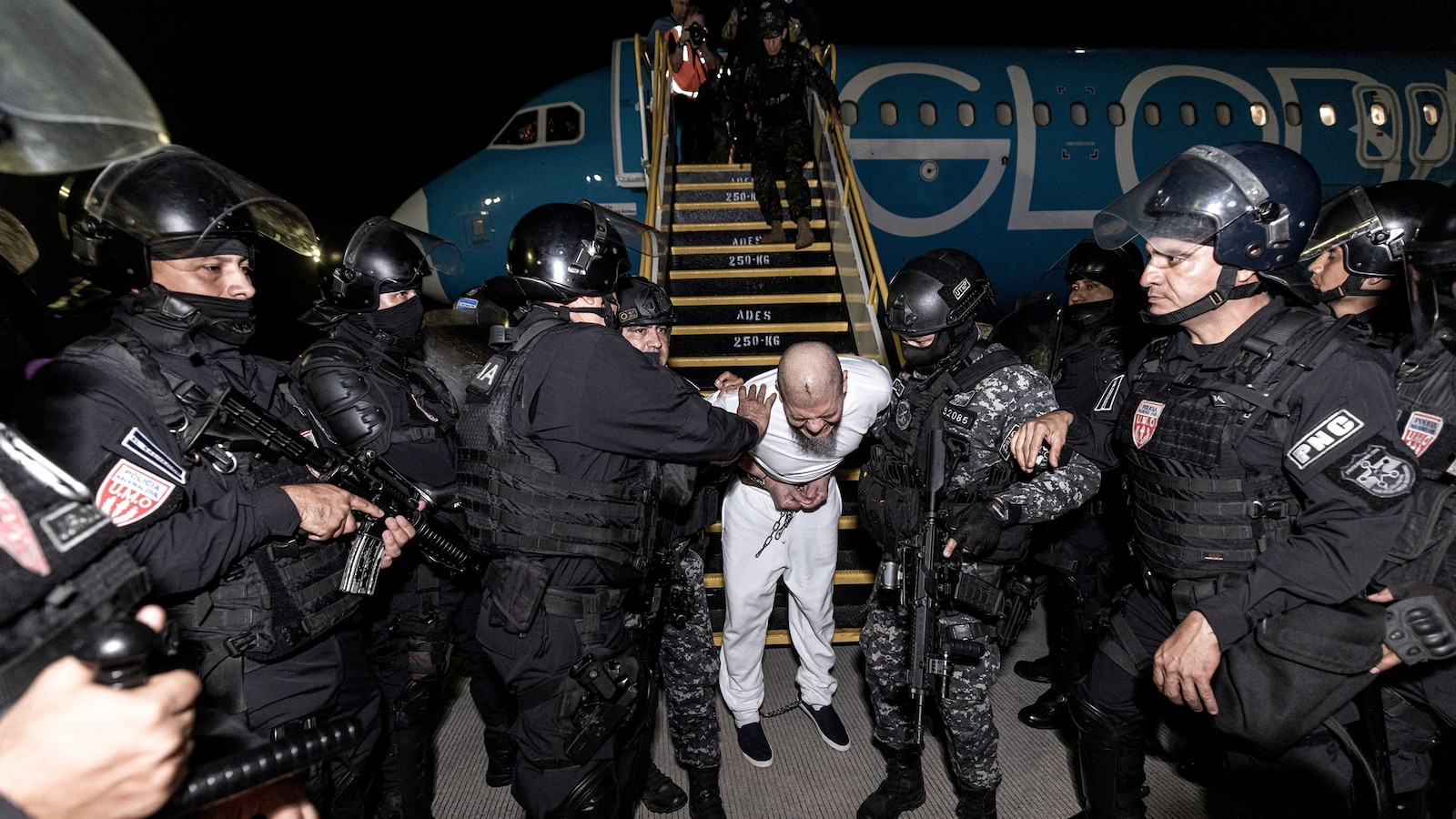
Takei's 2019 interview with Grayce Uyehara, whose grandparents were also interned, is a good place to start if you'd like to know more about his experience:

Here's another fascinating account of internment that also brings in miscegenation laws:
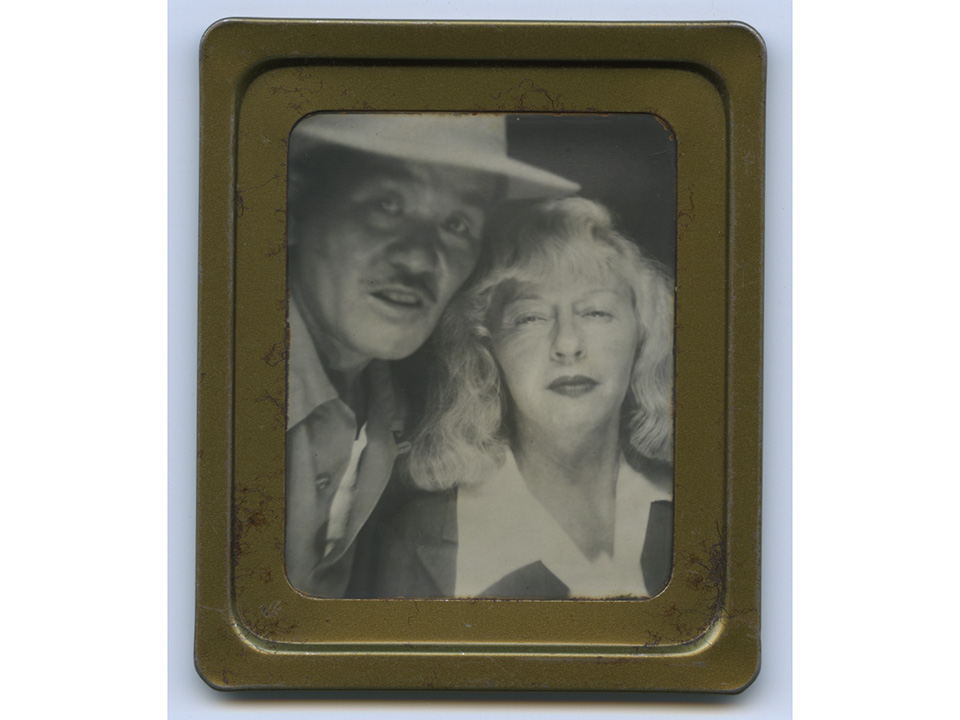
Reading They Called Us Enemy in the context of current events—not to mention social media discussions by U.S. citizens demonstrating ignorance of immigration law and history—made me recognize major gaps in my own knowledge. I headed across the village street to that gem of a bookshop, to ask for book recommendations. The owner pointed me to Ana Minian's 2024 book, In the Shadow of Liberty, which I'm about to dive into next.
We also discussed how stressful and difficult it is, to try to keep up with the speed at which crises are now created by the White House. We agreed that it is important to take breaks from the news cycle even though, more and more, we check back after just a few hours to discover additional distressing events have already occurred.
Case in point: when I got in the car to drive home, I turned on the radio, and heard coverage of the violence inflicted on California Senator Alex Padilla, the Chairman of the Senate Judiciary Subcomittee on Immigration, Citizenship, and Border Safety. If you haven't watched the footage, here it is:
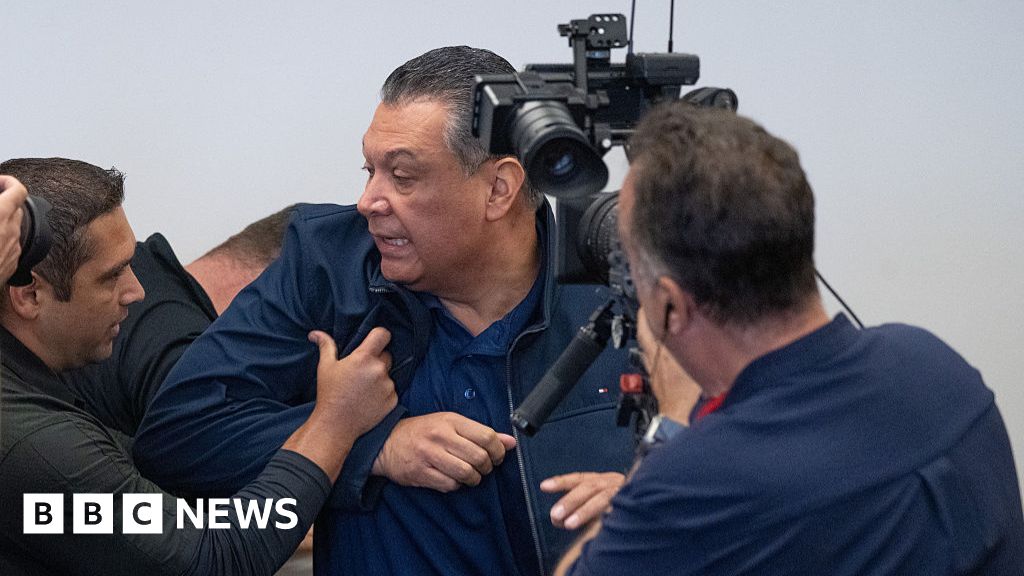
Agents manhandle Senator Padilla, force him to the floor, and handcuff him
Many of us remain unaware of how the operations of ICE and a growing for-profit carceral system are shaping questions of freedom and liberty for everyone right now. If you haven't read this Canadian woman's account, I'd suggest you take a look:

Journalist Andrea Pitzer's substack piece here is also important, as it brings in treatment of the homeless as well as the undocumented: https://degenerateart.beehiiv.com/p/the-concentration-camp-tendency
I'd recommend watching Pitzer's recent, highly informative podcast, "The Concentration Camp Tendency Goes Global":
I will also be ordering her book-length study soon, from my helpful indie bookstore owner:
